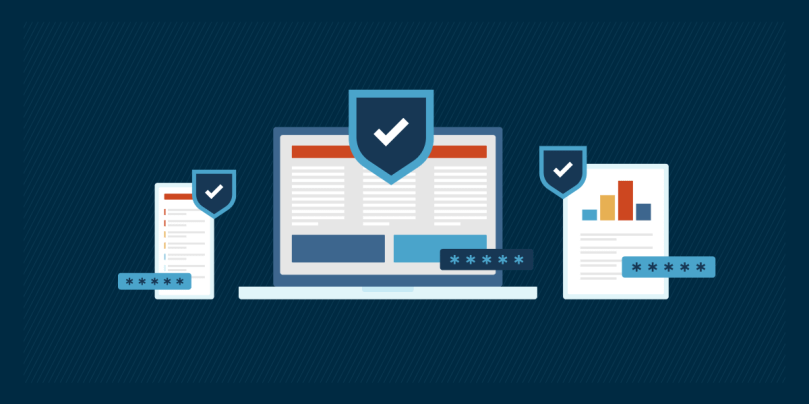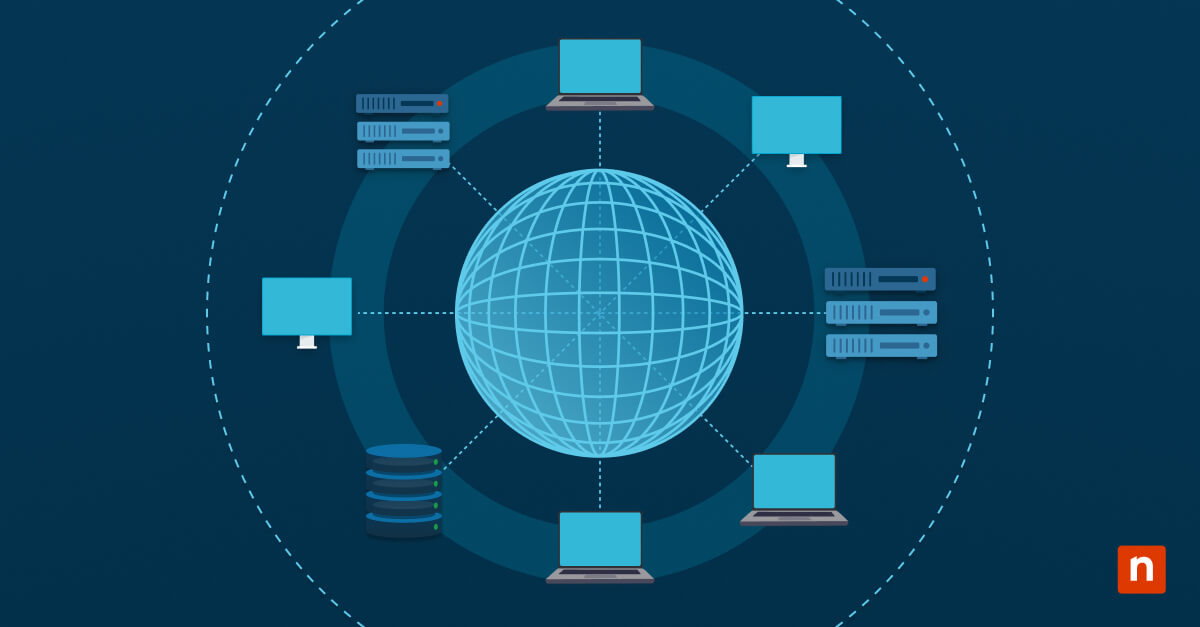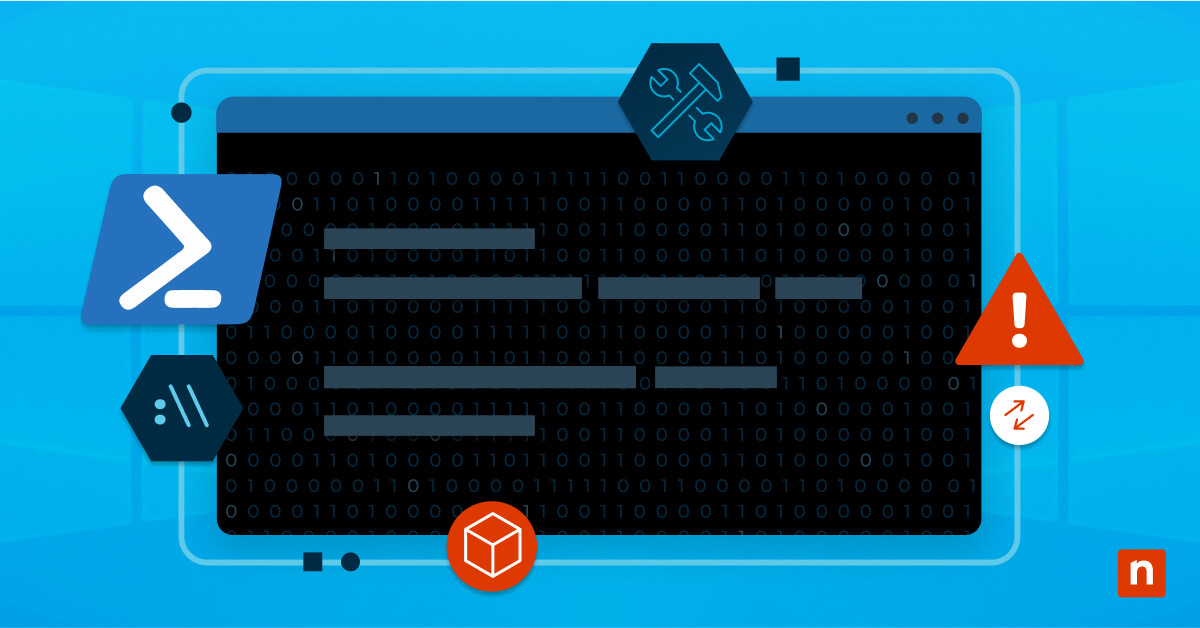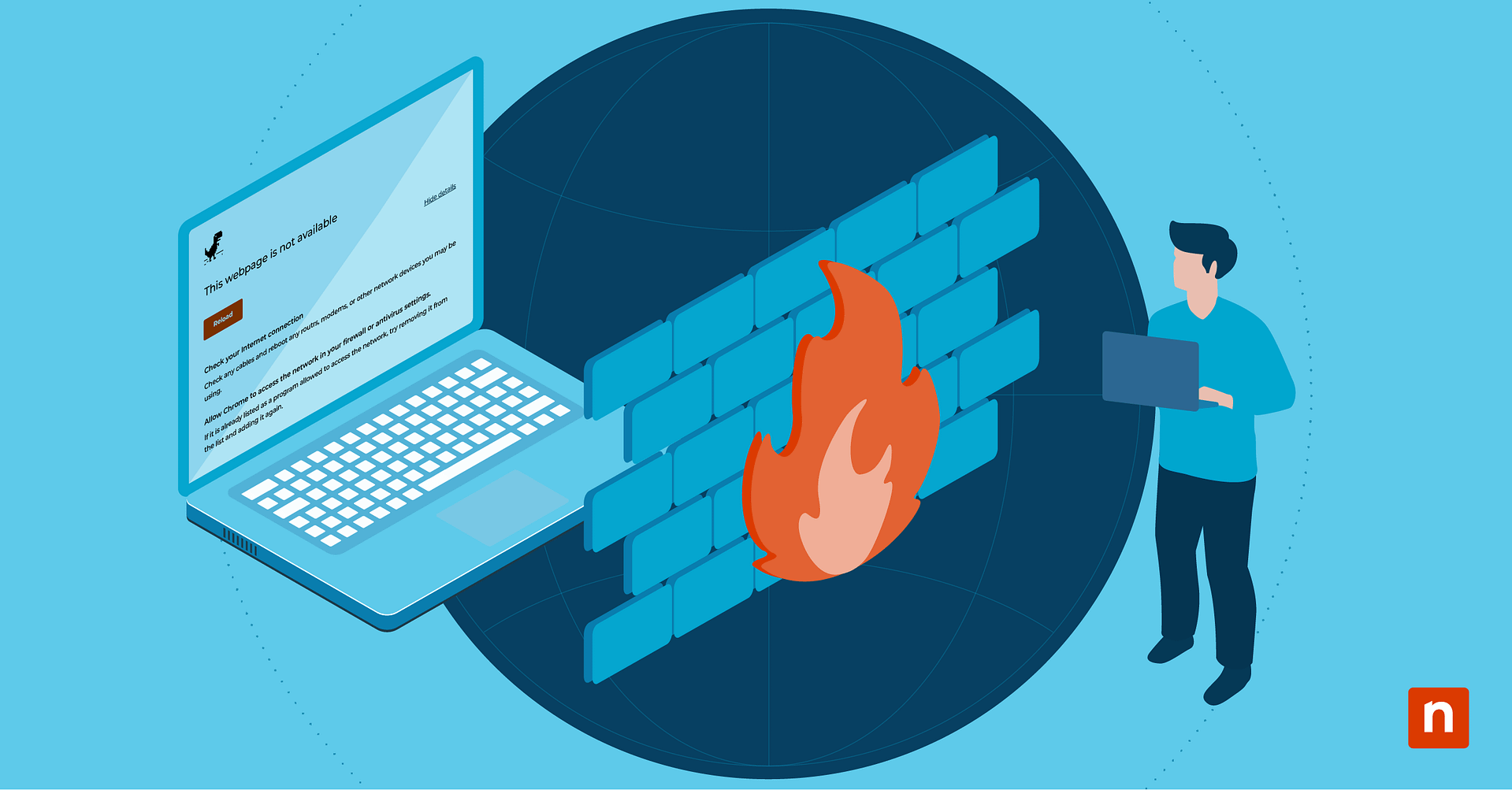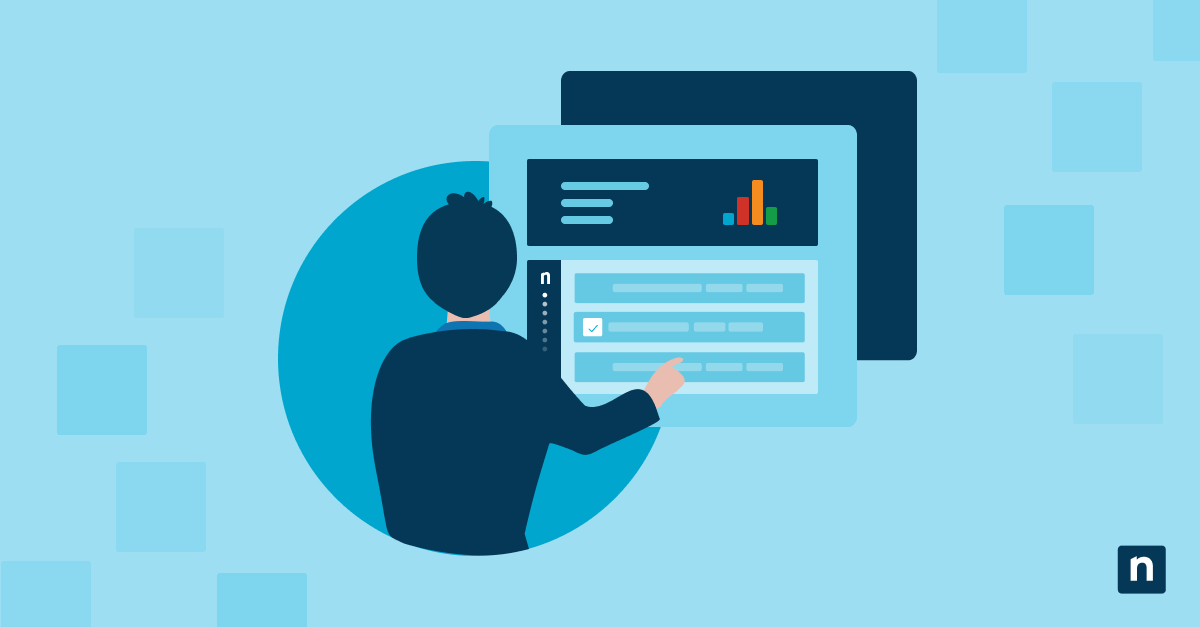This year, organizations around the world are focused on strengthening their endpoint security, especially since the average cost of data breaches is rising significantly. IBM’s data breach report confirms that the average global cost of a data breach is 4.35 million, and the U.S. average cost is 9.44 million. Endpoint security is a part of a cybersecurity program that prevents threats and attacks from damaging an IT environment.
What is endpoint security?
Endpoint security focuses on securing and protecting endpoint devices from cyberattacks and threats. IT teams and MSPs use endpoint security management to oversee their endpoint security policies, practices, and strategies. The reason why endpoints require security is because they act as entryways, or doors, to a business’s data, goals, and other critical information. Any electronic device that communicates with a network can be considered an endpoint. Some examples of endpoints that organizations use include:
Endpoints
- Desktop computers
- Laptops
- Smartphones
- Tablets
- Servers
- Workstations
- Routers and switches
- Printers
5 main components of endpoint security
Businesses rely on endpoint protection platforms (EPP) and endpoint monitoring and management tools to proactively protect endpoints from threats. It’s important to note that endpoint security isn’t a single process; it’s the combination and unification of multiple processes that protect and manage endpoints. There are five core elements, or processes, of endpoint security that organizations focus on:
1) Endpoint monitoring and management
Endpoint monitoring and management solutions work in conjunction with other endpoint security tools to update devices, provide live telemetry data, access and control endpoints remotely, manage passwords and codes, and much more. These tools contain everything you need to ensure that your devices are safe, up-to-date, and in the right hands.
2) Endpoint detection and response (EDR)
Endpoint detection and response (EDR) is a proactive endpoint security solution that analyzes endpoint behavior, identifies threat patterns, works to resolve threats or attacks, and alerts the security team to notify them of suspicious behavior. These features help IT security teams tackle threats early on and obtain critical information so that they can resolve issues quickly before it’s too late.
3) Anti-virus and anti-malware
Anti-virus and anti-malware are an important line of defense in an endpoint security system, and their main purpose is to detect and remove malware from devices and operating systems. Although these two tools are similar, they deal with different threats. Antivirus deals with older, more well-known threats, such as worms or viruses, while anti-malware specializes in resolving more advanced threats, such as malware or even spyware. Both are necessary for a well-rounded endpoint security system.
4) Zero-trust policies
Zero-trust is a concept that IT security experts apply when configuring and setting up devices. Basically, zero-trust means to trust nothing at first, and then add only trustworthy and necessary applications on devices. A zero trust policy is a proactive way for an IT team to secure devices and reduce human error.
5) Patching and software updates
Patching and updating devices is an excellent way to strengthen endpoint security, but it’s not as easy as it sounds. There are plenty of patch management challenges that make IT pros place patching on the bottom of their to-do list. To fix this problem and take the patching burden off of their IT teams, organizations turn to automated patch management tools that will deploy and manage patches with minimal human intervention.
Why is endpoint security important?
Even though endpoints are incredibly useful for businesses, they are often difficult to manage and protect. There are many recent IT horror stories that show the importance of keeping endpoints’ software and security systems up-to-date. Additionally, organizations are continuously adding more endpoints to their IT environments each year. “44% of IT teams manage between 5,000 and 500,000 endpoints,” an endpoint security survey explains. Without reliable endpoint security, all of these endpoints are at risk and can be targeted by malicious cybercriminals.
Top endpoint security tools
Best tool for all-in-one endpoint protection: Bitdefender GravityZone
Bitdefender GravityZone is an all-in-one endpoint protection solution that offers effective endpoint attack and threat prevention. Due to their machine learning behavioral monitoring and endpoint attack prevention features, they are able to proactively catch and prevent threats that traditional antivirus and endpoint protection solutions will miss.
Best tool for multi-layer endpoint security: ESET Endpoint Security
ESET Endpoint Security offers cloud-based, multi-layer endpoint protection that shields endpoints from various threats, such as malware and ransomware. It combines machine learning with crowdsourced threat intelligence in order to proactively detect and prevent endpoint threats and attacks.
Best tool for DNS endpoint security: Heimdal™ Threat Prevention Endpoint
Heimdal™ Threat Prevention Endpoint is a DNS tool that uses AI, machine learning, and threat intelligence to fully protect all endpoints from threats and cyberattacks. This solution is also known for its ability to integrate smoothly with other tools and provide information from a unified dashboard.
Manage your endpoint security with NinjaOne
NinjaOne helps IT departments and MSPs unify and manage all aspects of their IT environments, including endpoint security. With an endpoint monitoring and management solution from NinjaOne, you gain access to powerful monitoring and alerting tools, endpoint task automation, software management, automated OS and application patching, and remote access features. Learn more about how NinjaOne can help you manage your endpoint security when you start your free trial.

